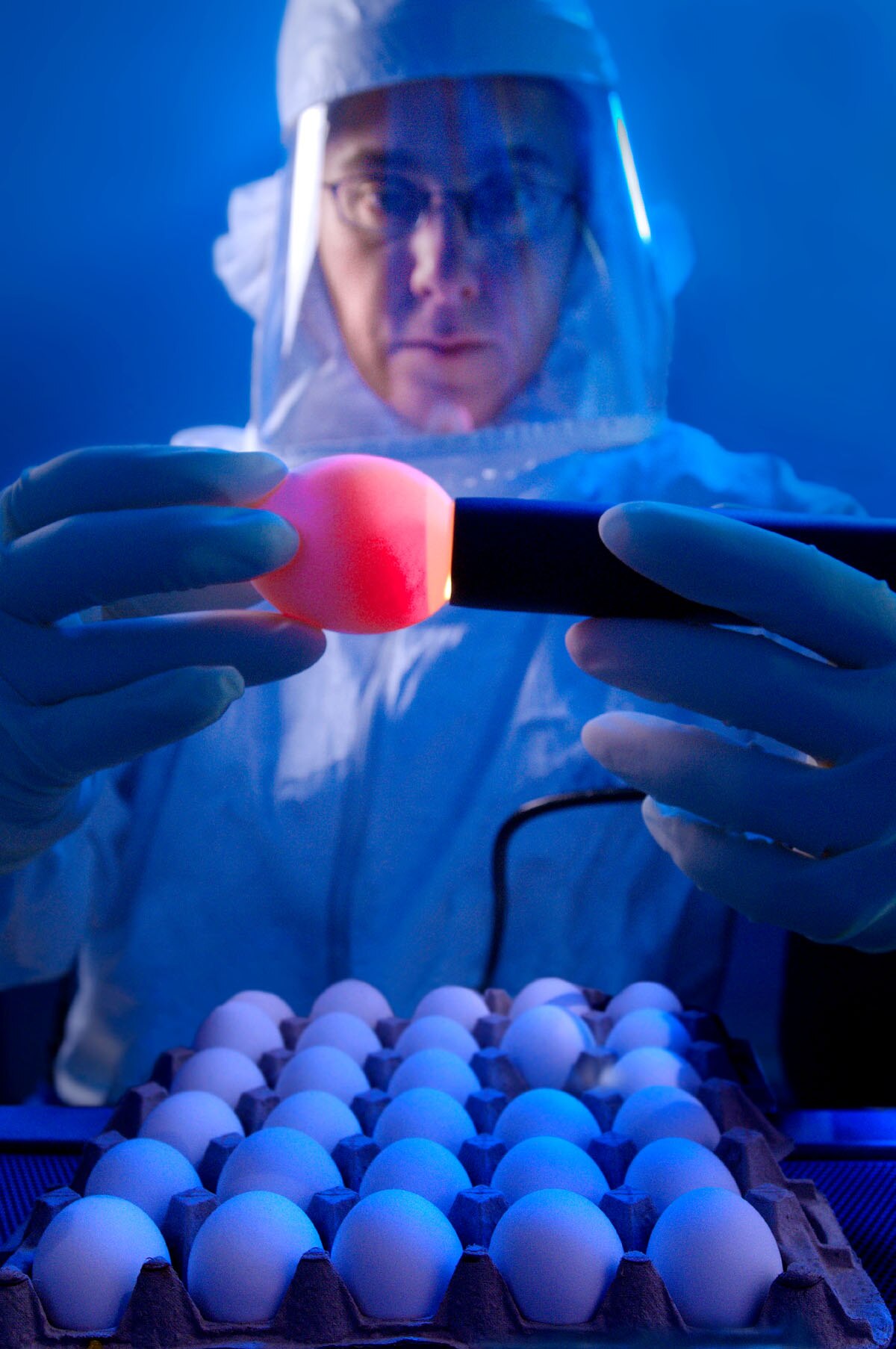How Long Does It Take a Chicken Egg To Hatch?
If you are a novice to keeping chickens, or if you’re considering starting a flock, then you’ll no doubt wish to learn whatever you can about these remarkable animals. Not just will a flock of chickens provide you with beautifully fresh eggs, however you will also have the opportunity to taste what genuine chicken tastes like, depending obviously on your factors for keeping chickens in the very first place. A typical misunderstanding in between individuals is that you require or need a rooster in order to get eggs, obviously this is merely not the real truth. You just require a rooster if you desire to have fertilized chicken eggs.

Can We Tell if an Egg is Fertile?
Yes, however only if you break it open. People who are professionals in the practice of hatching fertilized chicken eggs will typically select one or 2 eggs at random and after that break them open thoroughly so that they can inspect the yolks. With a sterile or infertile egg, you’ll observe a little white/grey dot somewhere on the yolk, but with a fertile egg, there will be a darkish circle around the dot, which to a certain degree looks like a bull’s eye. By inspecting a few eggs, you can get a reasonably good concept or idea regarding whether the majority of your chicken eggs are fertile.

Candling Fertile Chicken Eggs During Incubation:How Long Does It Take a Chicken Egg To Hatch?
You can hatch fertilized chicken eggs without the assistance of a hen. Incubators are designed to keep chicken eggs warm and damp, supplying them with the essential environment for healthy development till they hatch. Eggs needs to be placed into the incubator within 7 days of being laid. The temperature inside the incubator must be in between 99 and 102 degrees Fahrenheit, depending upon the design of the incubator. Turn the eggs frequently to decrease the possibility that the chick will become adhered to the inside of the shell and grow abnormally.

When fertilized chicken eggs have been under a brooding hen or in an incubator for a duration of about 3 or 4 days, you can candle the eggs to see if they’ve begun developing. To do this, you can utilize the cardboard roll that you’ll find in the center of toilet tissue. Just position or put the egg on one end and after that shine a powerful light in through the other end.
Obviously this needs to be performed in a dark room or in a closet in order for you to see anything. If the eggs are in fact developing, you need to at this moment start to see veining, and if you candle the eggs later in their development you’ll even have the ability to see the baby chicken forming inside the egg. If after a week you do not see any signs of any development, you ought to consider throwing the eggs out, especially if you’re using an incubator. Eggs that do not develop can blow up if you leave them in the incubator, and not just do they make an awful mess, but the odor is excruciating too.

The majority of individuals who keep chickens desire a rooster so that they can get fertilized chicken eggs to hatch, and you felt confident that as soon as you’ve had your first batch of eggs hatch, you’ll to be completely hooked. So, for how long does it take a chicken egg to hatch? The definitive response to that is 21 days precisely, although you need to remember that this can differ, depending on a variety of scenarios and situations. Usually however, fertile chicken eggs which are hatched out by a hen will take 21 days before you see little faces looking at you beneath their mother’s wings.
If on the other hand you utilize an incubator in order to hatch fertilized chicken eggs, they can often hatch a day or 2 early, or they can likewise hatch out a couple of days late. Things like humidity and temperature play a considerable role. For instance, if the temperature level is even a little bit higher than what it should be, you will often have eggs starting to hatch on day nineteen or on day twenty. If for some reason the temperature level has dropped below the appropriate temperature level on a few occasions, you might discover a few of your eggs just hatching on day 22, 23, or even on day 24 or 25.
Hatching out fertilized chicken eggs can be very fulfilling, and the most significant issue or problem flock owners tend to have is that they wind up with even more chickens than they had actually initially planned to have.

Natural Brooding vs Using an Incubator
It depends upon what you’re trying to do.
A broody hen (one that remains in the mood to set on eggs) can save you a great deal of work, and we believe the chicks raised by her are smarter and much better able to take care of themselves. She keeps them warm. She teaches them to eat. She teaches them how to discover food. An excellent broody hen will even help them learn how to conceal from predators. Chicks that are hatched in an incubator then reared in a brooder under artificially produced heat aren’t going to have all this extra training from the hen. So there are some extremely genuine benefits to hatching under a broody hen.

That said, broody hens just aren’t all that foreseeable. A minimum of a number of them aren’t. You do not know exactly when they’ll go broody. They’re most likely to brood during spring, but precisely when they’ll begin is unknown. Second, not all broodies will stick with sitting all the way through to the hatch. Third, some of them will hatch your chicks fine, however they won’t take excellent care of them. And 4th, some broodies eventually get tired of raising chickens and become brutal toward them or towards a few of them.
Broody hens should be housed independently so they can set and hatch undisturbed by other hens, and therefore they can raise their young without the threat of other chickens hurting them (which they can and will do at times). So having enough housing readily available can be a constraint. The housing also should be safe and secure enough that animals like skunks can not dig under it and eat the eggs or the chicks.
If you have a great broody hen, that has the prospective to conserve you some work and raise better-taught chicks for you. However an incubator can work effectively and is more foreseeable and predictable.
Our Preferred Approach To Incubation and Natural Brooding
Our preferred method to incubate is to simultaneously hatch within an incubator and under a broody hen with the very same hatch date.
As soon as a hen begins to go broody, we remove her eggs for a few days. If she’s serious about setting, then she’ll continue to collect eggs under her and incubate them. On the other hand, we begin collecting the eggs that we want to hatch. Generally, we will collect these from other breeding pairs, which are housed in different pens from the broody.
When we are prepared to begin the hatch, we will position a clutch of eggs under the hen, and we’ll also begin a batch of eggs incubating in the incubator. In this manner, both the hen and the incubator will have the very same projected hatch date.
This offers a number of advantages:
If the hen stops to set, we can candle any eggs she still has and we move the good ones into the incubator, so they still have a likelihood of hatching. Likely by this time, we will have some empty space in the incubator from having actually candled and eliminate bad eggs from it.
After the chicks hatch in the incubator, we can put a few of the baby chicks below the mother hen for her to raise, if we wish to. As long as we don’t exaggerate it, and as long as we make this shift during the night, there’s a likelihood that she’ll accept them and raise them.
Related posts:
7 Amazing Scientific Reasons on Why Do Roosters Crow
8 Excellent Ways How to Fix Curled Toes Paralysis in Chickens
10 Amazing Reasons on Raising Quails
10 of the Most Amazing Grey Chicken Breeds To Raise
7 Proven Scientific Ways to Test For Freshness of Eggs (Updated January 2022)
7 Amazing Scientific Facts About Temperature for Chickens: How Cold Is Too Cold for Chickens?



thanks a lot a lot this fabulous website is usually proper
along with everyday
consorcio banco do brasil veiculos simulacao consorcio santander veiculos usados consorcio de carros novos volkswagen consorcio de carros mais em conta como funciona consorcio de carros volkswagen consorcio banco do brasil veiculos simulacao consorcio chevrolet onix activ consorcio bradesco veiculos simulador consorcio de carros banco caixa economica federal consorcio de carros chevrolet seminovos.
como funciona o consorcio de imoveis da caixa economica consorcio imobiliario porto seguro consorcio imoveis porto seguro tabela consorcio de imoveis caixa tabela de precos consorcio imobiliario porto seguro consorcio imobiliario caixa simulador consorcio imovel porto seguro consorcio bb imovel vale a pena consorcio imobiliario santander reclame aqui consorcio imovel bb simulador consorcio imobiliario bb consorcio de imovel itau e bom.
Cialis En Sevilla Beccqz where can i buy plaquenil in tucson az